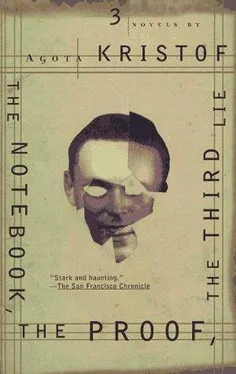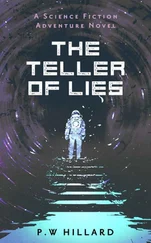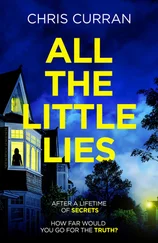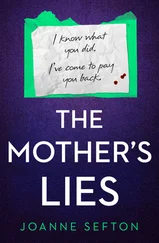Almost three years passed this way. I no longer needed crutches; I could walk with a cane. I knew how to read, write, and do arithmetic. We weren't given grades, but I often got the gold star that was stuck up beside our names on the wall. I was especially strong at mental arithmetic.
The teacher had a room at the hospital, but she didn't always sleep there. She went into town in the evening and didn't come back until morning. I asked her if she wanted to take me with her, and she answered that it was impossible, that I wasn't allowed to leave the center, but she promised to bring me chocolate. She gave me the chocolate secretly because there wasn't enough for everybody.
One evening I said to her, "I've had enough sleeping with the other boys. I'd like to sleep with a woman."
She laughed. "You'd like to sleep in the girls' room?"
"No. Not with girls. With a woman."
"Which woman?"
"Well, with you. I'd like to sleep in your room, in your bed."
She kissed me on the eyelids. "Little boys your age should sleep alone."
"Do you sleep alone too?"
"Yes, me too."
One afternoon she appeared under my hiding place, which was high up in a walnut tree whose branches formed a comfortable sort of seat where I could read and from which the town was visible.
The teacher said to me, "Tonight, when everyone's asleep, you can come to my room."
I didn't wait until everyone was asleep. I might well have waited until morning. They were never all asleep at the same time. There were those who cried, those who went to the bathroom ten times a night, those who climbed into each other's beds to do things, those who talked until dawn.
I gave my usual whacks to the crybabies, then I went to see the little blond paralytic who doesn't move and doesn't speak. All he does is look at the ceiling, or the sky if he is brought outside, and smile. I took his hand, held it to my face, and then placed my hands against his face. He looked at the ceiling and smiled.
I left the dormitory and went into the teacher's room. She wasn't there. I lay down in her bed. It smelled nice. I fell asleep. When I woke up in the middle of the night she was lying beside me, her arms crossed over her face. I uncrossed her arms, put them around me, pressed myself against her, and stayed that way, awake, until morning.
Some of us received letters, which the nurses handed out or read to the recipients if they were unable to do so themselves. Afterward, when they asked me, I read their letters to them again. Generally I read the exact opposite of what the letters actually said. The results were, for instance: "Our dear child, whatever you do, don't get well. We're getting along just fine without you. We don't miss you at all. We hope that you'll remain where you are, because the last thing we want is a cripple in the house. Still, we send you a couple of kisses, and be good, because the people taking care of you are very good. We couldn't do as much for you. We're lucky that someone else is doing the job for us, since there is no place for you in this family, where everyone else is healthy. Your parents, sisters, and brothers."
The person I read the letter to said, 'That's not how the nurse read my letter."
I said, "She read it differently because she didn't want to hurt your feelings. I read what the letter really says. I think you have a right to know the truth."
He said, "I have the right, yes, but I don't like the truth. The nurse was right to read it differently."
He cried.
Many of us also got packages. Cakes, cookies, ham, sausages, jam, honey. The director said that these packages had to be shared among everyone. Still, some of the children hid food in their beds or closets.
I went up to one of these children and asked, "You're not afraid that it might be poisoned?"
"Poisoned? Why?"
"Parents prefer a dead child to a crippled one. Haven't you ever thought about that?"
"No, never. You're a liar. Get lost."
Later I saw the child throwing his package out with the center's garbage.
Some parents also came to see their children. I waited for them at the front door of the center. I asked them the reason for their visit and the name of their child. When they answered I said, "I'm so sorry. Your child died two days ago. You haven't received our letter yet?"
After that I ran off quickly to hide.
The director called me in. She asked, "Why are you so nasty?"
"Nasty? Me? I don't know what you're talking about."
"You know very well what I'm talking about. You told a child's parents that he was dead."
"So? Wasn't he dead?"
"No, and you're perfectly aware of the fact."
"I must have gotten the names mixed up. They all sound the same."
"Except yours, right? But no child died this week."
"No? Well, I must have been thinking of last week."
"Yes, obviously. But I am advising you to make no more mistakes about names, or weeks. And I forbid you from talking to parents and visitors. I also forbid you from reading letters to the children who can't read."
I said, "I was only trying to be helpful."
She said, "I forbid you from being helpful to anyone. Do you understand me?"
"Yes, Madame Director, I understand. But no one should complain if I won't help them up stairs, if I don't pick them up when they fall down, if I don't explain their sums to them, if I don't correct the spelling in their letters. If you forbid me from being of help, forbid them from asking me for it."
She looked at me for a long time and then said, "Fine. Get out."
I left her office and saw a child crying because he had dropped his apple and couldn't pick it up. I walked past him and said, "You can cry but that won't get you your apple back, you oaf."
He asked me from his wheelchair, "Couldn't you please bring it to me?"
I said, "You're going to have to do it yourself, idiot."
That evening the director came into the dining hall. She made a speech and at the end of it she said that no one should ask favors of anyone but the nurses, the teacher, or, as a last resort, her.
As a consequence of all this I had to go twice weekly into the little room next to the infirmary, where a very old woman sat in a big armchair with a thick cover over her knees. I had already heard about her. The other children who went into the room said that the old woman was very nice and grandmotherly and that it was pleasant to be there, lying down on a cot or sitting at a table and drawing whatever you wanted. You could also look at picture books and you could say whatever you pleased.
The first time I went we didn't say anything to each other except good morning. Afterward I grew bored-none of her books interested me, I didn't want to draw-so I paced from the door to the window and from the window to the door.
After a while she asked me, "Why do you constantly pace like that?"
I stopped and replied, "I have to exercise my weak leg. I pace whenever I can, when I don't have anything else to do."
She smiled a wrinkled smile. "It seems to be doing very well, that leg."
"Not well enough."
I threw my cane onto the bed, took a few steps, and fell down by the window.
"See how well it's doing?"
I crawled back and retrieved my cane. "When I can do without this, I'll be better."
I didn't go the next few times I was meant to. They looked for me everywhere but couldn't find me. I was deep in the garden, up in the branches of my walnut tree. Only the teacher knew about my hiding place.
The final time the director herself brought me to the little room just after the midday meal. She shoved me inside and I fell onto the bed. I didn't stir. The old woman asked me questions.
"Do you remember your parents?"
I answered, "No, not at all. How about you?"
She kept on with her questions.
Читать дальше






![Джеффри Дивер - Where the Evidence Lies [A Lincoln Rhyme Short Story]](/books/403782/dzheffri-diver-where-the-evidence-lies-a-lincoln-r-thumb.webp)





